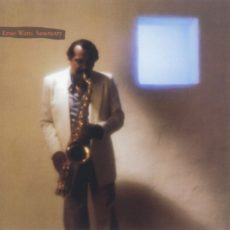
Daily Dose Of Jazz…
Ernest James Watts was born October 23, 1945 in Norfolk, Virginia. He began playing saxophone at thirteen. After a brief period at West Chester University, he attended Berklee College of Music on a Downbeat scholarship. He toured with Buddy Rich in the mid-1960s, occupying one of the alto saxophone chairs, with Lou Marini sitting the other.
He traveled to Africa on a US State Department tour with Oliver Nelson’s group and played tenor saxophone with The Tonight Show Band under Doc Severinsen for 20 years. During the Seventies he was a featured soloist on many of Marvin Gaye’s Motown albums, as well as on countless other pop and R&B sessions during 25 years as a first-call musician in the studios of Los Angeles, California.
In the mid-1980s Watts decided to rededicate himself to jazz, recording and touring with German guitarist and composer Torsten de Winkel, drummer Steve Smith and keyboardist Tom Coster. He joined bassist Charlie Haden’s Quartet West, played the saxophone on the Grease soundtrack, clarinet on The Color Purple soundtrack and performed on the opening theme song of the popular 80s sitcom Night Court.
Ernie founded Flying Dolphin Records and in early 2008, his Analog Man won the award in the 7th Annual Independent Music Awards for Best Jazz Album, worked with vocalist Kurt Elling, won a Grammy in 2010 for Best Jazz Vocal Album. He tours Europe twice a year with his own Ernie Watts Quartet, as well as Asia and summer jazz festivals the world over.
He has toured with the Rolling Stones, played the mystery horn on Frank Zappa’s album The Grand Wazoo, and has performed and recorded with Richard Groove Holmes, Alphonse Mouzon, Billy Alessi, Bobby Alessi, Gene Ammons, Paul Anka, Eric Martin, Willie Bobo, Brass Fever, Kenny Burrell, Lee Ritenour, David Axelrod, Donald Byrd, Stanley Clarke, Billy Cobham, Gino Vannelli, Randy Crawford, Kurt Elling, Torsten de Winkel, Hellmut Hattler, Dizzy Gillespie, Bobby Hutcherson, Milt Jackson, J. J. Johnson, Carole King, Charles Kynard, John Mayall, Carmen McRae, Blue Mitchell, Helen Reddy, New Stories, Moacir Santos, Lalo Schifrin, Bud Shank, Gábor Szabó, Gerald Wilson, Ndugu Chancler, Alphonso Johnson, Patrice Rushen, Joe Louis Walker, Barry Goldberg, Paul Jones, Chubby Tavares, T. Bone Walker, Big Joe Turner and Otis Span among others.
Tenor, alto and soprano saxophonist and flautist Ernie Watts has won two Grammy Awards as an instrumentalist and continues to perform, record and tour.
![]()
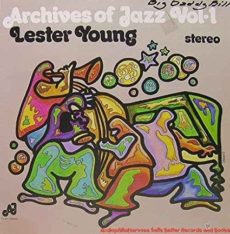
Daily Dose Of Jazz…
Jesse Drakes was born October 22, 1924 in New York City. He hung out at Minton’s Playhouse in his youth and attended Juilliard in the 1940s. In the 1940s he played with Al Cooper’s Savoy Sultans, Sid Catlett, J.C. Heard, Edie Heywood, Deke Watson, and Sarah Vaughan. He worked extensively with Lester Young, the pair collaborated on and off between 1948 and 1956.
During this period Drakes played with Harry Belafonte, Gene Ammons, Sonny Stitt, Louie Bellson and Duke Ellington. By the late 1950s he was playing less jazz and more R&B music, touring with King Curtis and playing at the Motown studios in the 1960s. From 1969 he was based out of New York, leading dance ensembles and singing.
Trumpeter Jesse Drakes, who never recorded as a leader, was found dead in his apartment in New York City on May 1, 2010, so his actual date of death is therefore unknown.
Sponsored By
www.whatissuitetabu.com
![]()
More Posts: trumpet
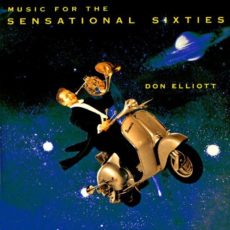
Daily Dose Of Jazz…
Don Elliott was born October 21, 1926 in Somerville, New Jersey and played mellophone in his high school band and played trumpet for an army band. After study at the University of Miami he added vibraphone to the list and recorded with Terry Gibbs and Buddy Rich before forming his own band.
From 1953 to 1960 he won the DownBeat readers poll several times for miscellaneous instrument-mellophone. Known as the “Human Instrument”, Don additionally performed jazz as a vocalist, trombonist, flugelhornist and percussionist. He pioneered the art of multitrack recording, composed countless prize-winning advertising jingles, prepared film scores, and built a thriving production company.
Elliott scored several Broadway productions including James Thurber’s The Beast in Me and A Thurber Carnival, in the latter of which he performed with his quartet. He also provided one of the voices for the novelty jazz duo the Nutty Squirrels. He lent his vocal talents to such motion picture soundtracks as The Getaway starring Steve McQueen, $ (Dollars) starring Warren Beatty, and The Hot Rock starring Robert Redford, as well as composing the score to The Happy Hooker starring Lynn Redgrave.
Elliott owned and operated one of the very first multitrack recording studios in New York City and in Weston, Connecticut and recorded over 60 albums and 5,000 advertising jingles throughout his career. A longtime associate of Quincy Jones, he contributed vocal work to many of Jones’ film scores. As sideman he performed and recorded with Phil Bodner, Miles Davis, Lee Konitz, Jackie McLean, Paul Desmond, Billy Taylor, Billy Eckstine, Bill Evans, Urbie Green, Michel Legrand, George Shearing, Marty Bell, Bob Corwin, Louis Bellson and Mundell Lowe among others.
Trumpeter, vibraphonist, vocalist, and mellophone player Don Elliott, whose recording Calypso Jazz is considered by some jazz enthusiasts to be one of the definitive calypso jazz albums, passed away of cancer on July 5, 1984 in Weston, Connecticut.
![]()
More Posts: mellophone,trumpet,vibraphone,vocal
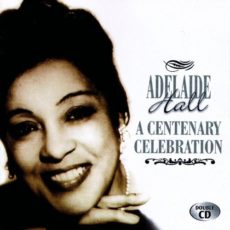
Daily Dose Of Jazz…
Adelaide Louise Hall was born on October 20. 1901 in Brooklyn, New York and began her stage career in 1921 on Broadway in the chorus line of the Noble Sissle and Eubie Blake hit musical Shuffle Along. She went onto appear in a number of similar black musical shows including Runnin’ Wild on Broadway in 1923, in which she sang James P. Johnson’s hit song Old-Fashioned Love.
In 1925, Hall toured Europe with the Chocolate Kiddies revue that included songs written by Duke Ellington, backed by the Sam Wooding Orchestra. The following year appeared in the short-lived Broadway musical My Magnolia after which she appeared in Tan Town Topics with songs written by Fats Waller and had a short road tour on the TOBA circuit. She then starred in Desires of 1927, with a score written by Andy Razaf and J. C. Johnson, that toured America for a year between 1926 and 1927.
In 1927 Adelaide recorded her wordless vocals on Creole Love Call, The Blues I Love To Sing and Chicago Stomp Down with Duke Ellington and his Orchestra. The recordings were worldwide hits and catapulted both careers into the mainstream. She and Duke Ellington went on to record I Must Have That Man and Baby. She starred on Broadway with Bill “Bojangles” Robinson, Tim Moore and Aida Ward in Blackbirds of 1928. The show became the most successful all-black show ever staged on Broadway at that time and made Hall and Bojangles into household names. It was this musical that not only secured her success at home and abroad in Europe when the production was taken in 1929 to Paris, France, where it ran for four months at the Moulin Rouge. In Europe she rivaled Josephine Baker for popularity on the European stage.
With Blackbirds′ music score written by Jimmy McHugh and lyrics by Dorothy Fields, Hall’s performances of the songs I Can’t Give You Anything but Love, Baby, Diga Diga Do, Bandanna Babies and I Must Have That Man made them into household hits, and they continued to be audience favourites throughout her long career. Through the 1930s she would perform on Broadway again with Bojangles in Brown Buddies, toured worldwide, discovered and hired blind pianist Art Tatum and recorded with him Strange as it Seems, I’ll Never Be The Same, This Time it’s Love and You Gave Me Everything but Love. She would continue to tour America, Canada and South America before turning to Europe once again and settling in Paris, France. Her husband, Bert Hicks, opened a nightclub for her called La Grosse Pomme where she entertained often. The Quintette du Hot Club de France featuring Django Reinhardt and Stephane Grappelli were one of the house bands at the club.
Leaving Paris for London, England in 1938, she lived out the rest of her days there, becoming one of the most popular singers of her time. Hall recorded I Can’t Give You Anything But Love and That Old Feeling at London’s Abbey Road Studios with Fats Waller. Throughout her career she made more than 70 records for Decca, had her own BBC Radio series Wrapped in Velvet, making her the first black artist to have a long-term contract with the BBC, became one of the highest paid entertainers in the United Kingdom and appeared on the stage, in films, and in nightclubs, of which she owned her own in New York, London and Paris.
Adelaide would go on to record with Humphrey Lyttleton, and perform alongside Lena Horne, Spike Milligan, John Betjeman, Ethel Waters, Josephine Baker, Louis Armstrong, Cab Calloway, Fela Sowande, Rudy Vallee, Jools Holland, Tony Bennett, Phyllis Hyman, Jacques Loussier, Alan Downey, Wayne Sleep, Ronnie Scott, Stan Tracey, the New Swingle Singers, Elisabeth Welch, Gregory Hines, Bobby Short, Honi Coles, Edith Wilson, Nell Carter, John W. Bubbles, Dizzy Gillespie, Herbie Hancock, Stephane Grappelli, Mel Torme, Zoot Sims, Carmen McRae and Chick Corea, among a list too vast to mention.
She pioneered scat singing along with Louis Armstrong and is widely acknowledged as one of the world’s first jazz singers, holds the accolade of being the 20th century’s most enduring female recording artist, her recording career having spanned eight decades, In the 100 Great Records of the 1920s she is at number 26 with Duke Ellington’s Orchestra, singing The Blues I Love To Sing, and her recording of the Dorothy Fields/Jimmy McHugh tune I Can’t give You Anything But Love represent 1928 in the American Society of Composers, Authors and Publishers (ASCAP) celebration of its centenary timeline of songs chosen to represent the past hundred years.
Singer, dancer, actress and nightclub chanteuse Adelaide Hall, who entered the Guinness Book of World Records in 2003 as the world’s most enduring recording artist having released material over eight consecutive decades, passed away on November 7, 1993, aged 92, at London’s Charing Cross Hospital.
More Posts: vocal
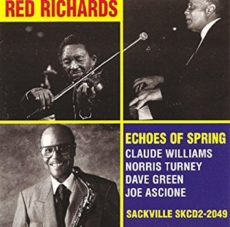
Daily Dose Of Jazz…
Red Richards was born Charles Coleridge Richards on October 19, 1912 in New York City. He began playing classical piano at age ten, and from the age of 16 concentrated on jazz after hearing Fats Waller. His first major professional gig was with Tab Smith at New York’s Savoy Ballroom from 1945 to 1949.
Following his stint with Smith, in the early Fifties Red played with Bob Wilber and Sidney Bechet. He toured Italy and France in 1953 with Mezz Mezzrow’s band alongside Buck Clayton and Big Chief Moore, and also accompanied Frank Sinatra during his time in Italy. He went on to work with Muggsy Spanier on and off from 1953 through the end of the decade, and then with Fletcher Henderson in 1957-58. During 1958 he did some time as a solo performer in Columbus, Ohio, then played with Wild Bill Davison in 1958-59 and again in 1962.
1960 saw Richards formed Saints & Sinners with Vic Dickenson, playing with this ensemble until 1970. He joined drummer Chuck Slate and his band in 1971 and stayed with him most of the year. He recorded an album with Chuck called Bix ‘N All That Jazz and following this he worked with Eddie Condon from 1975 to 1977. In 1977 he played with his own trio through the following year. He played and toured worldwide with Panama Francis’s group, the Savoy Sultans from 1979 through the 1980s and recorded with Bill Coleman in 1980.
Pianist Red Richards continued to tour almost up until the time of his death and passed away on March 12, 1998 in Scarsdale, New York.
![]()
More Posts: piano




